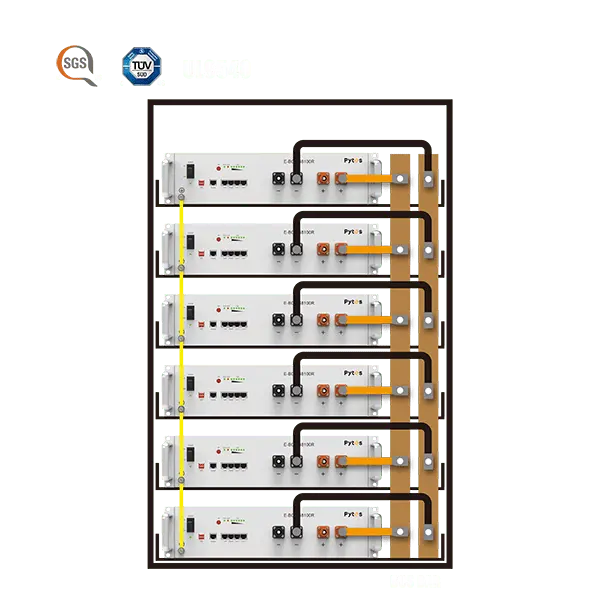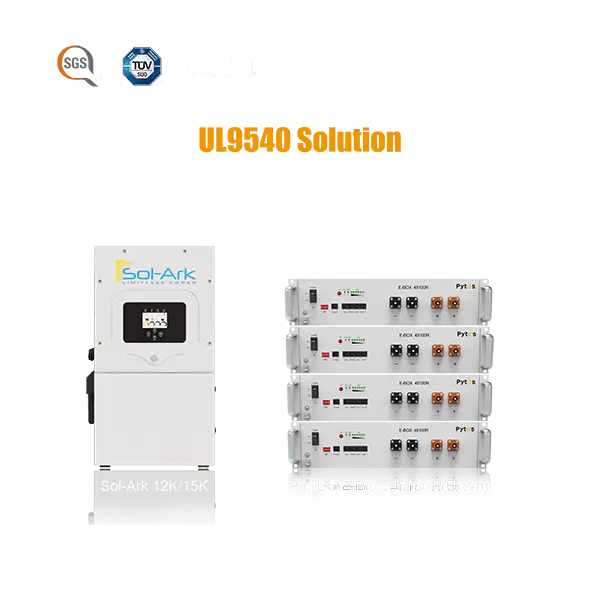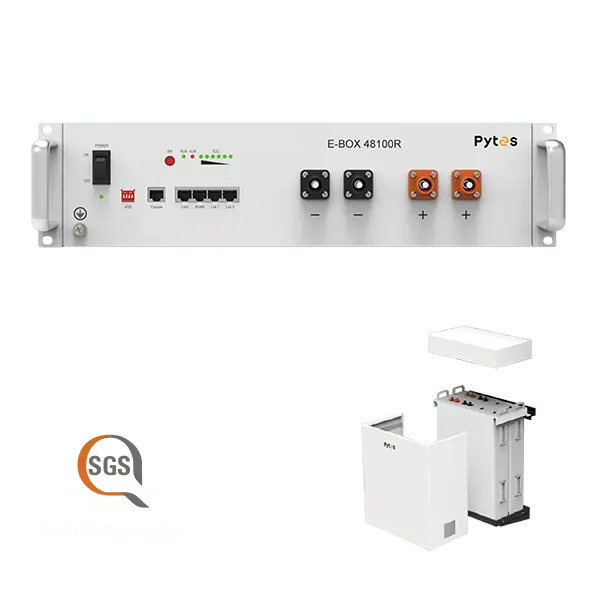As more homeowners and businesses adopt solar power, the need for effective energy storage solutions grows. Battery storage systems, such as the Pytes E-Box 48100R, offer a practical and effective solution. In this blog, we will explore the benefits of battery storage solutions and how they can maximize the efficiency of solar energy storage.
Solar energy is an abundant and renewable energy source. However, it is also intermittent as it relies on the availability of sunlight. This creates challenges in matching energy production with demand, especially during periods of lower solar production, such as cloudy days or at night. Battery storage systems help by storing excess energy generated during peak production and making it available for use during periods of lower or no solar production.

1. Maximizing self-consumption of solar energy: Battery storage systems allow homeowners and businesses to store excess energy generated during the day and use it during the evening or at night when solar production is low. This reduces reliance on the grid and minimizes energy costs, as stored energy can be used instead of purchasing electricity from the utility.
2. Enhancing energy independence: Battery storage systems provide a reliable backup power source during grid outages. This is particularly beneficial for areas prone to power disruptions or blackouts. With a battery storage system, solar energy users can continue to power their homes or businesses even when the grid is down, increasing energy independence and resilience.
3. Optimizing energy management: Battery storage systems enable efficient energy management by balancing energy supply and demand. Smart energy management systems can monitor energy usage patterns and automatically shift energy usage to off-peak hours when electricity rates are lower. This not only saves money but also reduces strain on the grid during peak demand periods.
1. Promote self-sufficiency
Batteries allow users to store solar energy and use it when they need it, reducing their dependence on the grid. As a result, users are less vulnerable to fluctuations in energy prices and can rely more on the electricity they generate.
2. Reducing dependence on fossil fuels
Storing solar energy in batteries for later use helps to reduce dependence on fossil fuels. Using batteries is environmentally sustainable and reduces the impact of fossil fuel market fluctuations.
3. Save on Energy Costs
Battery storage solutions allow users to change energy consumption patterns. Batteries can store energy during periods of low (and inexpensive) demand and use it during periods of peak demand when energy prices are higher.

The system uses 48-volt lithium iron phosphate batteries, which can be expanded as needed, providing users with safer and more efficient energy storage, and is a wise choice for battery replacement, expansion or new installation.Here are a few major advantages of the Pytes E-Box 48100R:
A. Storage of renewable energy
The main advantage of Pytes E-Box 48100R is that it enables homeowners to store energy generated by renewable energy. By capturing and storing this energy, homeowners can significantly reduce their dependence on the grid, save costs and achieve a more sustainable lifestyle. The solar battery storage system is rated for more than 6,000 cycles at 90% depth of discharge (DOD) and 80% retention rate (25°C), and has a long service life.
B. Cost savings and improved energy efficiency
Compared with traditional backup power solutions, Pytes E-Box 48100R saves costs and improves energy efficiency. Its lithium-ion battery technology prolongs its service life and reduces the need for frequent battery replacement. In addition, its high efficiency ensures optimal energy utilization, thereby minimizing electricity costs.
C. A feature of Pytes E-Box 48100R is that it is compatible with most leading inverters on the market, one of which is Sol-Ark home inverter.
D. Compact and easy to install
Pytes E-Box 48100R is compact, flexible and easy to install, thinner than most 5kWh server rack batteries, can be installed vertically and horizontally, comes with a bracket (E-Box 48100R bracket) and battery housing, can be wall-mounted, floor-standing or server rack-mounted (R-BOX-B, R-BOX-IP64, R-BOX-OC(IV).
When selecting a battery storage system for a solar energy system, several factors should be considered:
1. Capacity and power rating: The capacity of the battery system should be determined based on energy needs and usage patterns. It should be able to store enough energy to meet demand during periods of low solar production. The power rating should also be balanced to ensure optimal performance.
2. Efficiency and round-trip efficiency: The efficiency of a battery system refers to how effectively it stores and retrieves energy. Higher efficiency means more usable energy from the stored capacity. Round-trip efficiency measures the energy lost during the charging and discharging process. It is important to choose a battery system with high efficiency and round-trip efficiency to maximize energy savings.
3. Lifespan and warranty: Different battery technologies have varying lifespans. It is essential to understand the expected lifespan of the chosen battery technology and consider warranty terms and support from manufacturers. Investing in a battery system with a longer lifespan ensures long-term reliability and cost-effectiveness.

To effectively integrate battery storage systems into solar energy systems, the following control systems are essential:
1. Inverter systems: Inverter systems convert the direct current (DC) power generated by solar panels into alternating current (AC) power for household or commercial use. They also enable seamless integration of battery storage systems, allowing energy to flow between the solar panels, batteries, and the electrical grid.
2. Energy management systems: Energy management systems monitor and optimize energy usage and storage. They provide real-time data and insights on energy production, consumption, and battery status. These systems enable users to make informed decisions about energy usage and maximize the benefits of battery storage solutions.
Battery storage solutions play a vital role in enhancing the efficiency, reliability, and sustainability of solar energy systems. By storing excess energy and providing backup power during outages, battery storage systems maximize self-consumption and energy independence. Choosing the right battery technology, considering factors such as capacity, efficiency, and lifespan, and integrating control systems are crucial for optimizing the performance of battery storage solutions.
Home Battery Backup Systems: A Sustainable Solution for Energy Storage